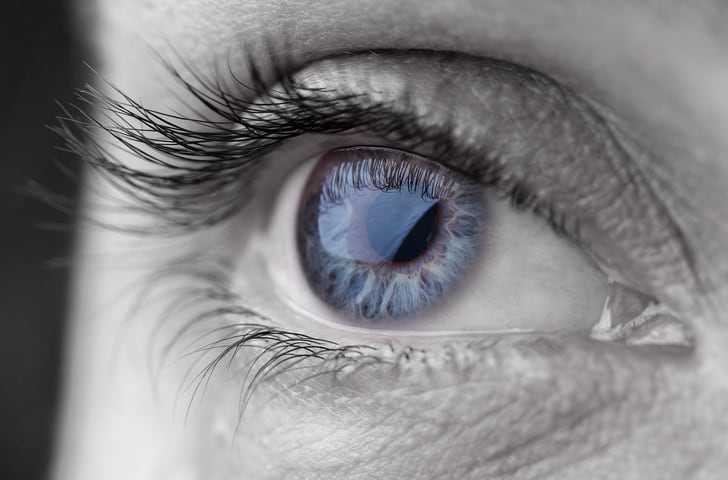Writing in the Journal of Pharmaceutical Health Care and Sciences, a team of Iranian university researchers explored the effects of the herbal extract, vitamin and mineral combination supplement on symptoms ranging from significant mood disturbances to functional impairment.
“PMSoff may exert a synergistic effect through its multi-ingredient formulation, potentially targeting different pathways involved in PMS symptomatology, such as inflammatory cytokines, hormonal fluctuations, serotonin modulation and neurochemical regulation, targeting both the psychological and physical components of PMDD,” the researchers wrote.
PMSoff is formulated with herbal extracts including lavender, lesser dodd, valerian, spirulina, chamomile, turmeric, saffron and rose, combined with calcium citrate, whey protein and vitamin B1.
The study was supported by Apira Arman Pirouz Iranian pharmaceutical company.
A more natural approach
Formulated by Dr. Hamid Reza Sheikh Roshandel at the T’aam Asrar Research Institute, PMSoff offers an alternative to nonsteroidal anti-inflammatory drugs, hormonal therapies and antidepressants, which the research team noted are typically accompanied byundesirable side effects, including weight gain, mood swings and sexual dysfunction.
“Premenstrual syndrome (PMS) is a prevalent and often debilitating condition that affects a substantial proportion of women during their reproductive years,” they wrote. “Among various countries, Iran reports the highest prevalence, with an estimated 98% of women experiencing PMS.”
One capsule of PMSoff contains lavender extract (50 mg), lesser dodder extract (90 mg), valerian extract (40 mg), spirulina extract (40 mg), saffron extract (13 mg), curcumin (10 mg), chamomile extract (25 mg), rose extract (100 mg), calcium citrate (50 mg) and vitamin B1 (56 mg).
While PMSoff offers a synergistic solution, the ingredients in PMSoff have been studied individually for their anti-inflammatory, antioxidant and mood-stabilizing properties.
Spirulina has demonstrated strong anti-inflammatory and antioxidant effects, whey protein may help to regulate hormonal fluctuations and stabilize mood, calcium citrate supports hormonal balance by relieving bloating and mood swings, while vitamin B1 may improve mood and reduce anxiety.
Chamomile and valerian are also known to help alleviate insomnia and anxiety, while turmeric, marigold, lavender, saffron and aftimoon contribute anti-inflammatory, analgesic and antidepressant effects.
Study details
The double-blind, randomized, placebo-controlled clinical trial recruited 218 women between the ages of 14 to 30 diagnosed with PMS or the more severe PMDD from eight selected clinics, hospitals and physician offices, as well as from the community.
Participants were randomly assigned to receive either the PMSoff supplement or an identical placebo capsule devoid of active ingredients. They were instructed to take the supplement daily a week before their expected menstruation and continue for three days after menstruation onset, maintaining this for three consecutive menstrual cycles.
The researchers analyzed the severity of PMS symptoms, measured using the Daily Record of Severity of Problems (DRSP) questionnaire, which evaluates symptoms across five domains: anxiety, depression, emotional symptoms, physical symptoms and water retention. The higher the score, the greater the severity of PMS symptoms.
Data was collected at pre-intervention, a month post-intervention and two months post-intervention.
The analysis showed that both the control and intervention groups saw a decrease in the severity of PMS symptoms; however the decrease in the intervention group was significantly more pronounced.
In this group, DRSP scores dropped from 43.28 ± 18.99 at baseline to 26.2 ± 17.32 after a month and 21.02 ± 18.4 after two months of treatment.
Meanwhile, DRSP scores dropped from 37.86 ± 23.07 at baseline to 30.79 ± 15.82 after 1 month and 28.61 ± 13.9 2 months of treatment in the control group.
The same trend of lower DRSP scores at post- and pre-intervention was observed in patients diagnosed with PMDD in both the control and intervention groups. The results were statistically significant only after the second month of intervention.
“The combination of these ingredients in PMSoff appears to provide a comprehensive approach to managing PMS by addressing both physical and emotional symptoms,” the researchers reported.
Some participants recorded minor side effects including nausea, bloating, heartburn and appetite changes.
The researchers recommended further studies to explore the long-term effects beyond two months, involve a wider cohort, as well as investigate the mechanism of action, in particular the effect of PMSoff on hormonal regulation, inflammatory pathways and neurotransmitter modulation to optimize the formulation.
Source: Journal of Pharmaceutical Health Care and Sciences, 11, 88. doi: 10.1186/s40780-025-00495-6. “Natural relief for premenstrual syndrome (PMS): a double-blind clinical trial on the efficacy and safety of PMSoff”. Authors: Saghafi, F., et al.




